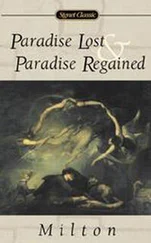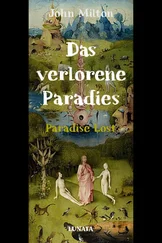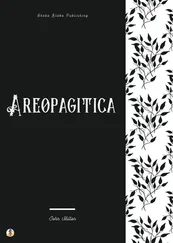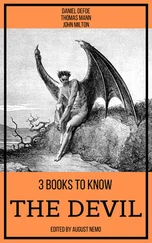John Milton - L'Allegro, Il Penseroso, Comus, and Lycidas
Здесь есть возможность читать онлайн «John Milton - L'Allegro, Il Penseroso, Comus, and Lycidas» весь текст электронной книги совершенно бесплатно (целиком полную версию без сокращений). В некоторых случаях можно слушать аудио, скачать через торрент в формате fb2 и присутствует краткое содержание. Год выпуска: 2015, Издательство: epubBooks Classics, Жанр: Поэзия, на английском языке. Описание произведения, (предисловие) а так же отзывы посетителей доступны на портале библиотеки ЛибКат.
- Название:L'Allegro, Il Penseroso, Comus, and Lycidas
- Автор:
- Издательство:epubBooks Classics
- Жанр:
- Год:2015
- ISBN:нет данных
- Рейтинг книги:3 / 5. Голосов: 1
-
Избранное:Добавить в избранное
- Отзывы:
-
Ваша оценка:
- 60
- 1
- 2
- 3
- 4
- 5
L'Allegro, Il Penseroso, Comus, and Lycidas: краткое содержание, описание и аннотация
Предлагаем к чтению аннотацию, описание, краткое содержание или предисловие (зависит от того, что написал сам автор книги «L'Allegro, Il Penseroso, Comus, and Lycidas»). Если вы не нашли необходимую информацию о книге — напишите в комментариях, мы постараемся отыскать её.
L'Allegro, Il Penseroso, Comus, and Lycidas — читать онлайн бесплатно полную книгу (весь текст) целиком
Ниже представлен текст книги, разбитый по страницам. Система сохранения места последней прочитанной страницы, позволяет с удобством читать онлайн бесплатно книгу «L'Allegro, Il Penseroso, Comus, and Lycidas», без необходимости каждый раз заново искать на чём Вы остановились. Поставьте закладку, и сможете в любой момент перейти на страницу, на которой закончили чтение.
Интервал:
Закладка:
Come; but keep thy wonted state,
With even step, and musing gait,
And looks commercing with the skies,
Thy rapt soul sitting in thine eyes:
There, held in holy passion still,
Forget thyself to marble, till
With a sad leaden downward cast
Thou fix them on the earth as fast.
And join with thee calm Peace and Quiet,
Spare Fast, that oft with gods doth diet,
And hears the Muses in a ring
Aye round about Jove's altar sing;
And add to these retired Leisure,
That in trim gardens takes his pleasure;
But, first and chiefest, with thee bring
Him that yon soars on golden wing,
Guiding the fiery–wheeled throne,
The Cherub Contemplation;
And the mute Silence hist along,
'Less Philomel will deign a song,
In her sweetest saddest plight,
Smoothing the rugged brow of Night,
While Cynthia checks her dragon yoke
Gently o'er the accustomed oak.
Sweet bird, that shunn'st the noise of folly,
Most musical, most melancholy!
Thee, chauntress, oft the woods among
I woo, to hear thy even–song;
And, missing thee, I walk unseen
On the dry smooth–shaven green,
To behold the wandering moon,
Riding near her highest noon,
Like one that had been led astray
Through the heaven's wide pathless way,
And oft, as if her head she bowed,
Stooping through a fleecy cloud.
Oft, on a plat of rising ground,
I hear the far–off curfew sound,
Over some wide–watered shore,
Swinging slow with sullen roar;
Or, if the air will not permit,
Some still removed place will fit,
Where glowing embers through the room
Teach light to counterfeit a gloom,
Far from all resort of mirth,
Save the cricket on the hearth,
Or the bellman's drowsy charm
To bless the doors from nightly harm.
Or let my lamp, at midnight hour,
Be seen in some high lonely tower,
Where I may oft outwatch the Bear,
With thrice great Hermes, or unsphere
The spirit of Plato, to unfold
What worlds or what vast regions hold
The immortal mind that hath forsook
Her mansion in this fleshly nook;
And of those demons that are found
In fire, air, flood, or underground,
Whose power hath a true consent
With planet or with element.
Sometime let gorgeous Tragedy
In sceptred pall come sweeping by,
Presenting Thebes, or Pelops' line,
Or the tale of Troy divine,
Or what (though rare) of later age
Ennobled hath the buskined stage.
But, O sad Virgin! that thy power
Might raise Musaeus from his bower;
Or bid the soul of Orpheus sing
Such notes as, warbled to the string,
Drew iron tears down Pluto's cheek,
And made Hell grant what love did seek;
Or call up him that left half–told
The story of Cambuscan bold,
Of Camball, and of Algarsife,
And who had Canace to wife,
That owned the virtuous ring and glass,
And of the wondrous horse of brass
On which the Tartar king did ride;
And if aught else great bards beside
In sage and solemn tunes have sung,
Of turneys, and of trophies hung,
Of forests, and enchantments drear,
Where more is meant than meets the ear.
Thus, Night, oft see me in thy pale career,
Till civil–suited Morn appear,
Not tricked and frounced, as she was wont
With the Attic boy to hunt,
But kerchieft in a comely cloud
While rocking winds are piping loud,
Or ushered with a shower still,
When the gust hath blown his fill,
Ending on the rustling leaves,
With minute–drops from off the eaves.
And, when the sun begins to fling
His flaring beams, me, Goddess, bring
To arched walks of twilight groves,
And shadows brown, that Sylvan loves,
Of pine, or monumental oak,
Where the rude axe with heaved stroke
Was never heard the nymphs to daunt,
Or fright them from their hallowed haunt.
There, in close covert, by some brook,
Where no profaner eye may look,
Hide me from day's garish eye,
While the bee with honeyed thigh,
That at her flowery work doth sing,
And the waters murmuring,
With such consort as they keep,
Entice the dewy–feathered Sleep.
And let some strange mysterious dream
Wave at his wings, in airy stream
Of lively portraiture displayed,
Softly on my eyelids laid;
And, as I wake, sweet music breathe
Above, about, or underneath,
Sent by some Spirit to mortals good,
Or the unseen Genius of the wood.
But let my due feet never fail
To walk the studious cloister's pale,
And love the high embowed roof,
With antique pillars massy proof,
And storied windows richly dight,
Casting a dim religious light.
There let the pealing organ blow,
To the full–voiced quire below,
In service high and anthems clear,
As may with sweetness, through mine ear,
Dissolve me into ecstasies,
And bring all Heaven before mine eyes.
And may at last my weary age
Find out the peaceful hermitage,
The hairy gown and mossy cell,
Where I may sit and rightly spell
Of every star that heaven doth shew,
And every herb that sips the dew,
Till old experience do attain
To something like prophetic strain.
These pleasures, Melancholy, give;
And I with thee will choose to live.
Comus
A Masque Presented at Ludlow Castle, 1634, Before the Earl of Bridgewater, Then President of Wales
The Persons
The ATTENDANT SPIRIT, afterwards in the habit of THYRSIS.
COMUS, with his Crew.
The LADY.
FIRST BROTHER.
SECOND BROTHER.
SABRINA, the Nymph.
The Chief Persons which presented were:—
The Lord Brackley;
Mr. Thomas Egerton, his Brother;
The Lady Alice Egerton.
The first Scene discovers a wild wood.
The ATTENDANT SPIRIT descends or enters.
BEFORE the starry threshold of Jove's court
My mansion is, where those immortal shapes
Of bright aerial spirits live insphered
In regions mild of calm and serene air,
Above the smoke and stir of this dim spot
Which men call Earth, and, with low–thoughted care,
Confined and pestered in this pinfold here,
Strive to keep up a frail and feverish being,
Unmindful of the crown that Virtue gives,
After this mortal change, to her true servants
Amongst the enthroned gods on sainted seats.
Yet some there be that by due steps aspire
To lay their just hands on that golden key
That opes the palace of eternity.
To Such my errand is; and, but for such,
I would not soil these pure ambrosial weeds
With the rank vapours of this sin–worn mould.
But to my task. Neptune, besides the sway
Of every salt flood and each ebbing stream,
Took in by lot, 'twixt high and nether Jove,
Imperial rule of all the sea–girt isles
That, like to rich and various gems, inlay
The unadorned bosom of the deep;
Which he, to grace his tributary gods,
By course commits to several government,
And gives them leave to wear their sapphire crowns
And wield their little tridents. But this Isle,
The greatest and the best of all the main,
He quarters to his blue–haired deities;
And all this tract that fronts the falling sun
A noble Peer of mickle trust and power
Has in his charge, with tempered awe to guide
An old and haughty nation, proud in arms:
Where his fair offspring, nursed in princely lore,
Are coming to attend their father's state,
And new–intrusted sceptre. But their way
Lies through the perplexed paths of this drear wood,
The nodding horror of whose shady brows
Threats the forlorn and wandering passenger;
And here their tender age might suffer peril,
But that, by quick command from sovran Jove,
I was despatched for their defence and guard:
And listen why; for I will tell you now
What never yet was heard in tale or song,
From old or modern bard, in hall or bower.
Bacchus, that first from out the purple grape
Crushed the sweet poison of misused wine,
After the Tuscan mariners transformed,
Coasting the Tyrrhene shore, as the winds listed,
On Circe's island fell. (Who knows not Circe,
The daughter of the Sun, whose charmed cup
Whoever tasted lost his upright shape,
And downward fell into a grovelling swine?)
This Nymph, that gazed upon his clustering locks,
With ivy berries wreathed, and his blithe youth,
Had by him, ere he parted thence, a son
Much like his father, but his mother more,
Whom therefore she brought up, and Comus named:
Who, ripe and frolic of his full–grown age,
Roving the Celtic and Iberian fields,
At last betakes him to this ominous wood,
And, in thick shelter of black shades imbowered,
Excels his mother at her mighty art;
Offering to every weary traveller
His orient liquor in a crystal glass,
To quench the drouth of Phoebus; which as they taste
(For most do taste through fond intemperate thirst),
Soon as the potion works, their human count'nance,
The express resemblance of the gods, is changed
Into some brutish form of wolf or bear,
Or ounce or tiger, hog, or bearded goat,
All other parts remaining as they were.
And they, so perfect is their misery,
Not once perceive their foul disfigurement,
But boast themselves more comely than before,
And all their friends and native home forget,
To roll with pleasure in a sensual sty.
Therefore, when any favoured of high Jove
Chances to pass through this adventurous glade,
Swift as the sparkle of a glancing star
I shoot from heaven, to give him safe convoy,
As now I do. But first I must put off
These my sky–robes, spun out of Iris' woof,
And take the weeds and likeness of a swain
That to the service of this house belongs,
Who, with his soft pipe and smooth–dittied song,
Well knows to still the wild winds when they roar,
And hush the waving woods; nor of less faith
And in this office of his mountain watch
Likeliest, and nearest to the present aid
Of this occasion. But I hear the tread
Of hateful steps; I must be viewless now.
Интервал:
Закладка:
Похожие книги на «L'Allegro, Il Penseroso, Comus, and Lycidas»
Представляем Вашему вниманию похожие книги на «L'Allegro, Il Penseroso, Comus, and Lycidas» списком для выбора. Мы отобрали схожую по названию и смыслу литературу в надежде предоставить читателям больше вариантов отыскать новые, интересные, ещё непрочитанные произведения.
Обсуждение, отзывы о книге «L'Allegro, Il Penseroso, Comus, and Lycidas» и просто собственные мнения читателей. Оставьте ваши комментарии, напишите, что Вы думаете о произведении, его смысле или главных героях. Укажите что конкретно понравилось, а что нет, и почему Вы так считаете.












